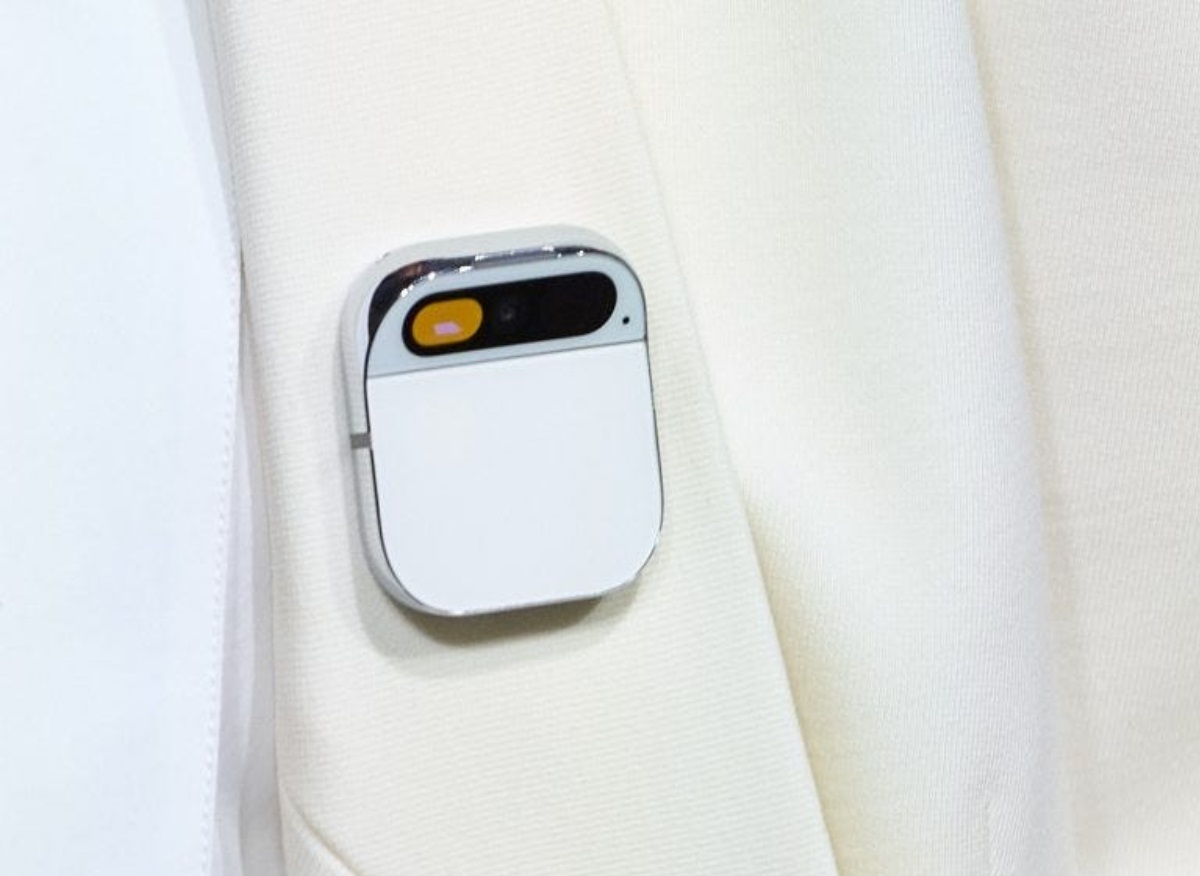Screenless, AI-centric smartphone is on its way
- Update Time : Thursday, November 23, 2023

A revolutionary screenless, AI-centric smartphone is on the horizon with the unveiling of the Humane AI Pin. This innovative device, showcased on Friday morning, challenges the conventional smartphone paradigm by forgoing a traditional screen in favor of direct interaction with artificial intelligence (AI). The Humane pin, a compact computer designed to be worn on clothing, features a camera, speaker, and microphone but intentionally lacks a display.
Rather than relying on screens, users have the option to project a minimalist interface onto their hand or a wall. The emphasis is on engaging with AI services through voice commands, promoting a departure from screen-centric interactions. Imran Chaudhri, co-founder of Humane, describes the product as a “standalone device and software platform built from the ground up for AI”.
Priced at Aus$699 with a Aus $24 monthly subscription fee, the Humane Pin includes an internet connection through Humane’s virtual mobile network in collaboration with T-Mobile, along with API calls to cloud services like OpenAI. This approach aims to streamline the device’s form factor by offloading hardware requirements and capitalizing on the proliferation of cloud-based AI services.
Bethany Bongiorno, another co-founder, emphasized that Humane’s operating system is geared towards AI experiences, both on-device and in the cloud. However, a noteworthy aspect of the demonstration revealed a factual error made by the AI, highlighting the challenges of trusting generative AI. When asked about the next solar eclipse, the device inaccurately suggested locations, showcasing the limitations of current AI capabilities.
Despite such glitches, Humane believes in the potential of its AI-centric approach. The company intends to rectify the error in its demo video and stresses that the OS comprehends user needs, selecting the appropriate AI for each moment. Nevertheless, this incident underscores the current limitations of AI in serving as a standalone operating system.
Humane’s fundamental premise is that smartphone screens are harmful, a belief that guided the device’s design. Former Apple executive José Benitez Cong, who reportedly joined Humane after retiring, expressed the device’s potential to alleviate guilt associated with his work on the iPhone. However, critics argue that Humane’s design limits user control and decision-making in computer usage.
During the demo, questions were raised about the AI’s decision-making process. When asked about the cost of a book or the protein content of almonds, the device provided answers without disclosing the specific online store or methodology used. Humane has secured partnerships, such as bundling its service with music streaming company Tidal, raising concerns about potential collaborations that limit consumer choice.
While Humane’s AI Pin presents a bold departure from traditional smartphones, its reliance on AI raises questions about the current readiness of generative AI to function as a standalone operating system, and the potential consequences for user autonomy and choice.

















